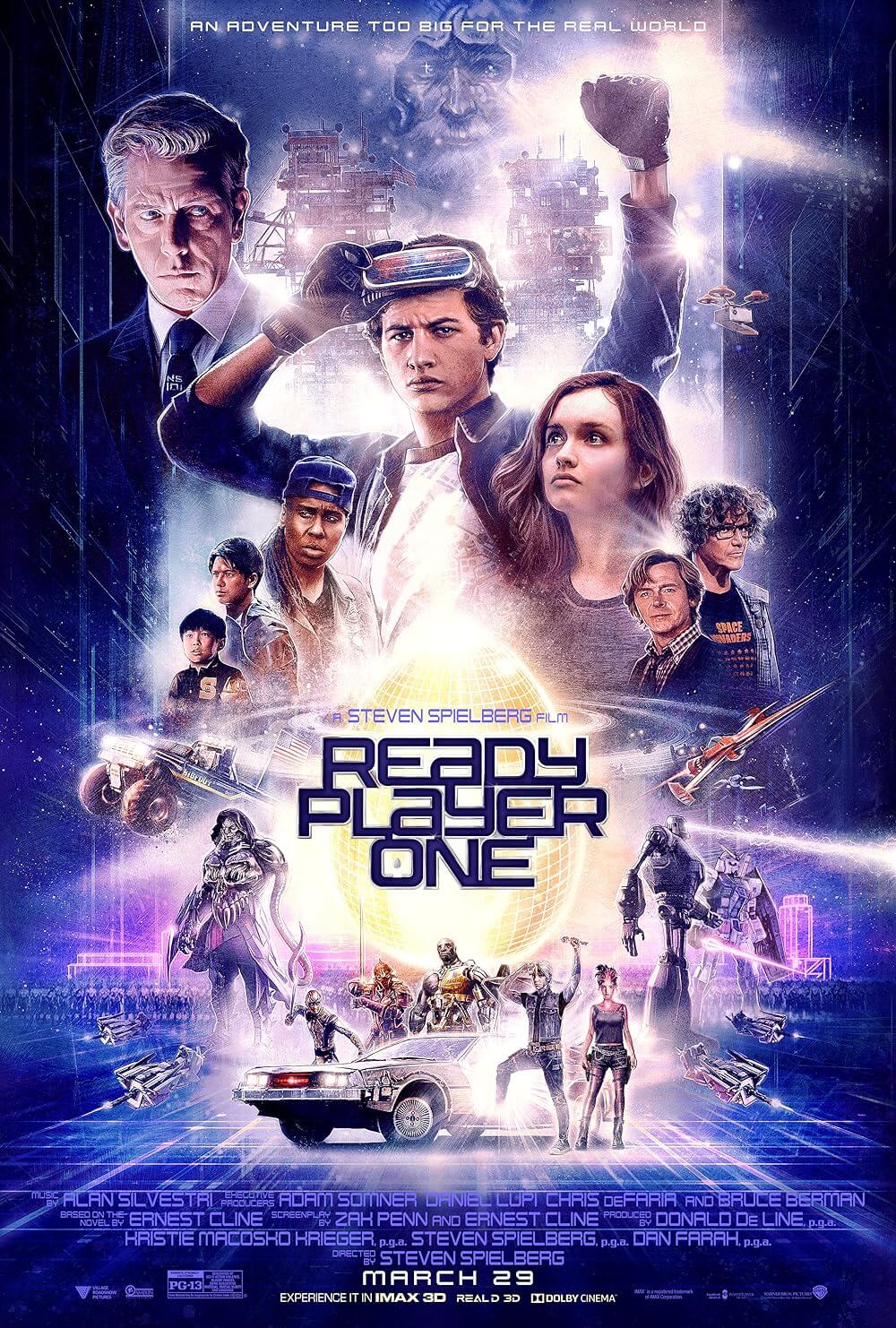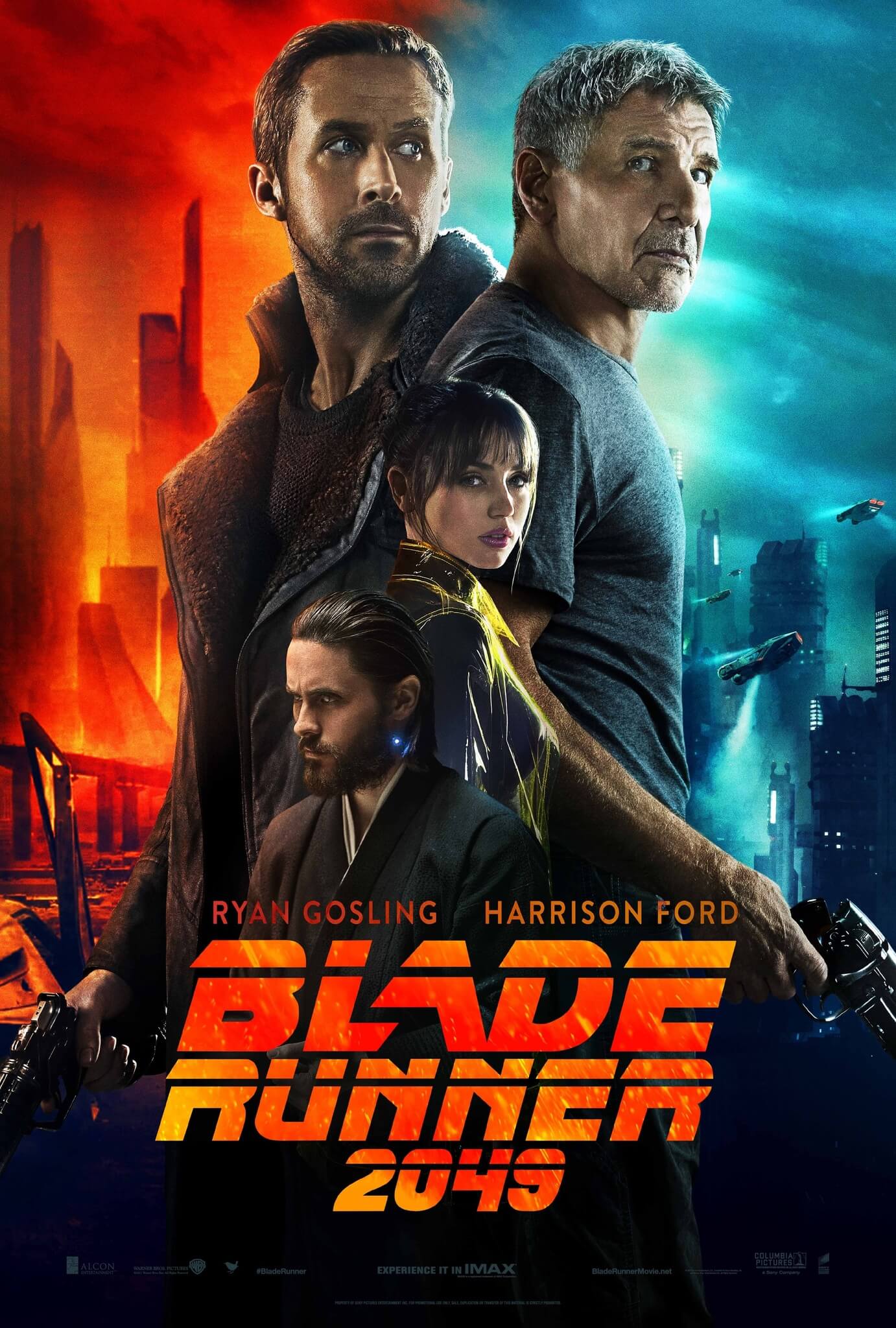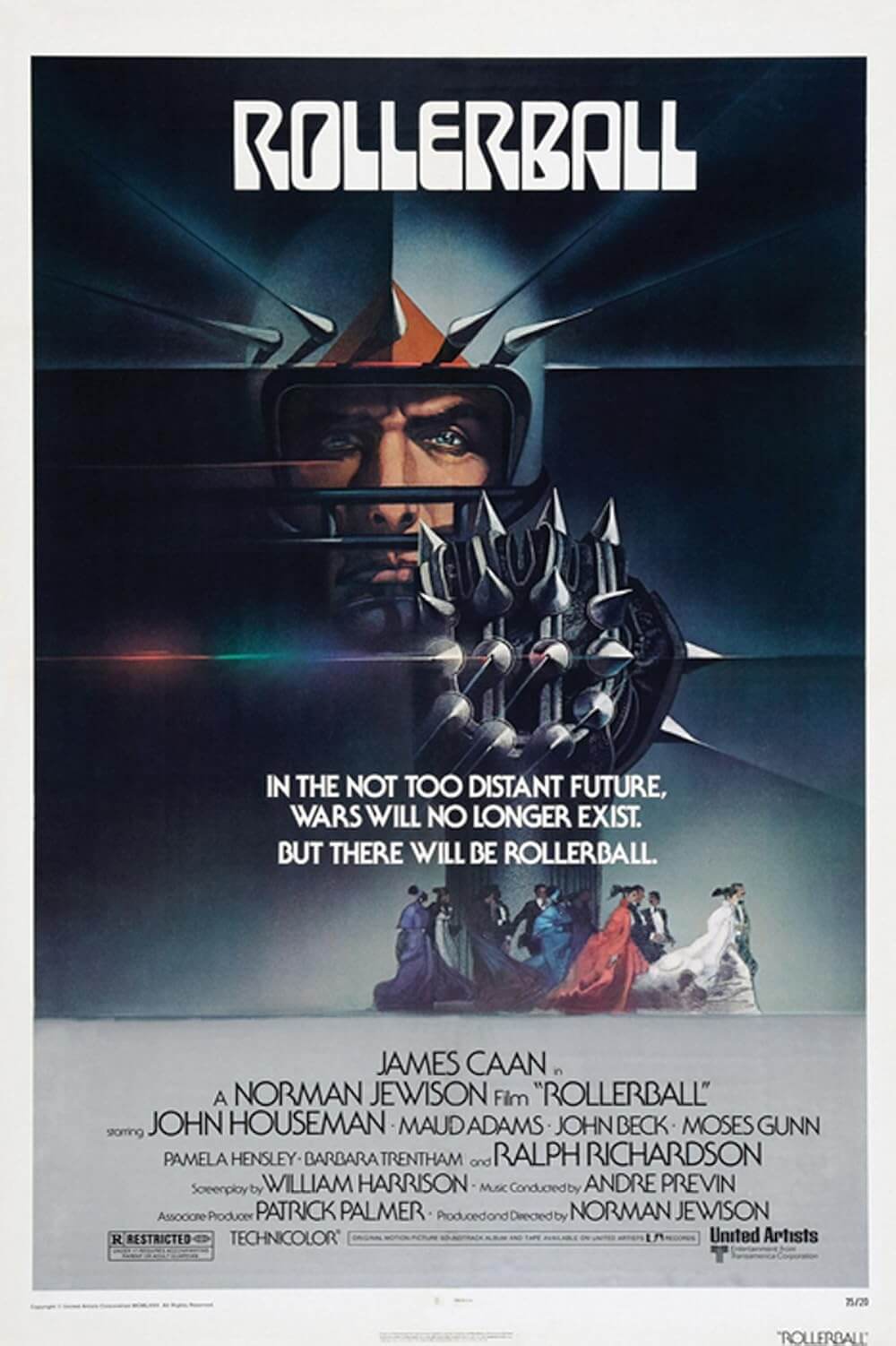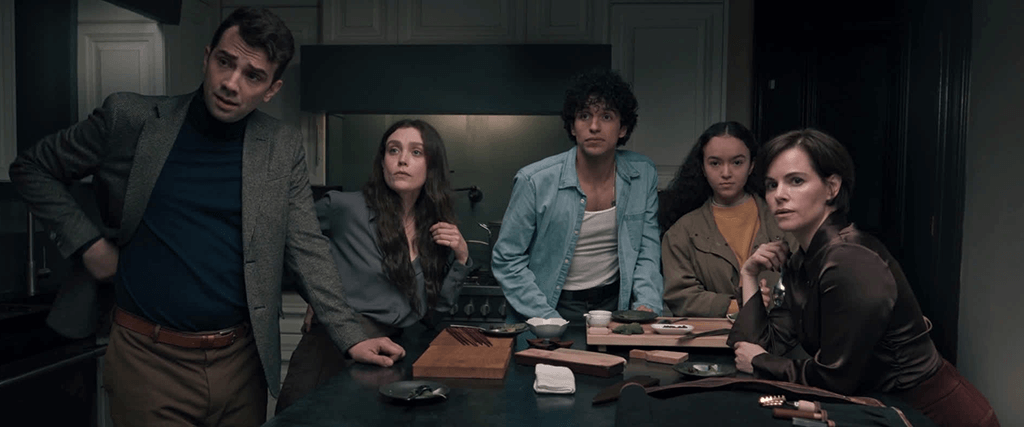
Humane
By Brian Eggert |
Humane presents a fascinating thought experiment that confronts the audience with a moral dilemma. Set in North America in the near future, the script by Michael Sparaga considers a world so overcome by climate change that every nation has closed its borders and enacted strict “population reduction goals” to prevent a complete environmental collapse. The government urges citizens to “enlist” and be euthanized, because “Enlistment = Opportunity”—a quarter-million-dollar payday for anyone who makes the sacrifice. It’s a chance many lower classes leap at, believing the money will change their surviving family members’ lives. Some enlist out of an ethical imperative for the greater good or because they’re terminally ill, elderly, or have a long prison sentence. If undocumented immigrant parents sign up, their children will be fast-tracked to citizenship. No one under 18 can enlist. Put aside the movie’s clever and convincingly elaborate world-building, and Humane raises questions about the value of life. Who should live and who should die? Can you go too far to protect the planet? And at what point do these questions become pointless to ask because your government has created strict rules they intend to enforce, leaving you with few options?
But as Jay Baruchel’s character, Jared, reminds his privileged siblings, “The rules aren’t made for people like us.” He’s the eldest son in the York family, one of four children of Charles York (Peter Gallagher), a famous news anchor, now retired, who asks his children over for a family dinner. His wife, Dawn (Uni Park), a renowned chef, prepares an elaborate meal of prohibited foods for the occasion—Charles will announce that he and Dawn plan to enlist. Jared, an anthropologist and media darling who supports the program, questions why anyone among their clan would volunteer given that the poor will probably reach the quota. Rachel (Emily Hampshire), a shrill pharmaceutical executive trying to manage a recent scandal, cannot believe her ears. Nor can Ashley (Alanna Bale), the youngest who hopes to become an actress. There’s also Noah (Sebastian Chacon), the Yorks’ adopted son, a piano prodigy and recovering addict who finally has hope for the future, so his parents’ choice troubles him. Given their complex relationships with their father, the children wonder: Is Charles enlisting to elevate his name? Does he hope to set an example, given their public status? They assume his motivations are selfish because, all their lives, Charles has been an absent father while he focused on his career.
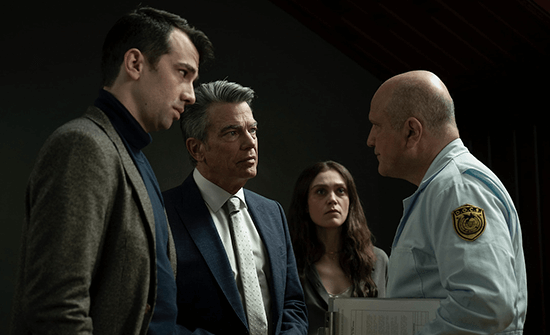 Directed by Caitlin Cronenberg—daughter of David (The Fly, 1986) and sister of Brandon (Infinity Pool, 2023)—the film unfolds like a chamber drama. One could imagine Humane becoming a particularly juicy work of stage drama, boasting a splatter zone in the first few rows. To be sure, Caitlin’s sensibilities echo those of her family members, from the dark and chilly interiors created by production designer Brian Garvey to the crisply controlled lensing by cinematographer Douglas Koch, who shot Father Cronenberg’s Crimes of the Future (2022). She also directs several strong performances from the cast (particularly Chacon), allowing the characters, though they’re at most two-dimensional, to feel more tangible than they might initially seem. There’s no shortage of blood, either. But the gory stuff feels secondary to the paranoid world of Humane, where everyone carries umbrellas and tints their windows to protect against dangerous UV rays, the government censors social media, and a fascistic state division called the Department of Citizen Strategy (D.O.C.S.) reinforces enlistment with light blue jumpsuits, big smiles, and semi-automatic weapons.
Directed by Caitlin Cronenberg—daughter of David (The Fly, 1986) and sister of Brandon (Infinity Pool, 2023)—the film unfolds like a chamber drama. One could imagine Humane becoming a particularly juicy work of stage drama, boasting a splatter zone in the first few rows. To be sure, Caitlin’s sensibilities echo those of her family members, from the dark and chilly interiors created by production designer Brian Garvey to the crisply controlled lensing by cinematographer Douglas Koch, who shot Father Cronenberg’s Crimes of the Future (2022). She also directs several strong performances from the cast (particularly Chacon), allowing the characters, though they’re at most two-dimensional, to feel more tangible than they might initially seem. There’s no shortage of blood, either. But the gory stuff feels secondary to the paranoid world of Humane, where everyone carries umbrellas and tints their windows to protect against dangerous UV rays, the government censors social media, and a fascistic state division called the Department of Citizen Strategy (D.O.C.S.) reinforces enlistment with light blue jumpsuits, big smiles, and semi-automatic weapons.
When D.O.C.S. arrives to collect Charles and Dawn, that’s when Humane at once becomes a tense thriller and loses some of its intellectual intrigue. Led by Bob (Enrico Colantoni), who enjoys his job far too much, the D.O.C.S. crew is scheduled to euthanize two citizens. But when Dawn backs out and disappears from the house, Bob informs the adult siblings, “I need a second cadaver.” In a maddening display of bureaucracy, Bob gives Charles’ children two hours to decide which of them will enlist, voluntarily or—gulp—involuntarily. While the siblings debate and, soon, violently lash out at each other to deliver the second cadaver, Bob takes Rachel’s teen daughter, Mia (Sirena Gulamgaus), to shield her from the fallout. Inside, the viewer’s sympathies align with Noah, who wasn’t born into privilege like his entitled counterparts, none of whom earn much sympathy from the viewer. For a while, the film becomes a cat-and-mouse ordeal, with the callous blood siblings ganging up on their adopted brother Noah to offer him to D.O.C.S. as the second body and increase their equal split of the inherence. Its critique of the cannibalistic wealthy compares to The Menu (2022), with its obvious eat-the-rich theme, albeit focused on how quickly they’ll turn on each other for a larger percentage.
Sparaga, who also produced the film, lashes out at the indulgent rich who ignore matters of climate change because it doesn’t help their portfolios, the governments that enact labyrinthine laws that exploit the 99%, and the general awfulness of humanity. Humane has a grim view of people and institutions, and it uses broad imagery and ideas to confront its targets. Not every aspect makes logical sense, and some plot holes may leave viewers scratching their heads. But it doesn’t have to all fit together perfectly like pieces in an elaborate puzzle; instead, it has an allegorical quality that recalls episodes of The Twilight Zone or The Outer Limits, where the moral questions take precedence over the particulars. In her first full-length feature, Caitlin Cronenberg starts, much as her father did, with exploitative material that has a clear real-world application, elevating the B-movie material. Humane is ultimately a well-crafted discussion prompt that, for all its momentary shocks and pitch-black humor, leaves one with fascinating questions—not only about what you would do in this family and in this society, but how the film reflects and comments on our world.
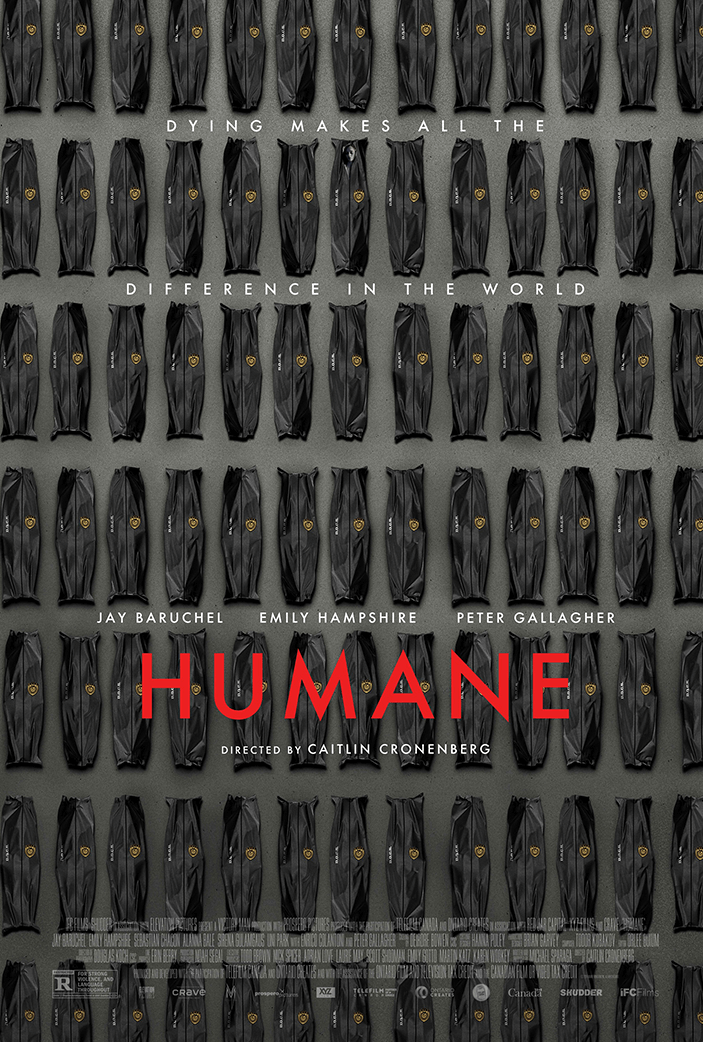
Consider Supporting Deep Focus Review
I hope you’re enjoying the independent film criticism on Deep Focus Review. Whether you’re a regular reader or just occasionally stop by, please consider supporting Deep Focus Review on Patreon or making a donation. Since 2007, my critical analysis and in-depth reviews have been free from outside influence. Becoming a Patron gives you access to exclusive reviews and essays before anyone else, and you’ll also be a member of a vibrant community of movie lovers. Plus, your contributions help me maintain the site, access research materials, and ensure Deep Focus Review keeps going strong.
If you enjoy my work, please consider joining me on Patreon or showing your support in other ways.
Thank you for your readership!
Brian Eggert | Critic, Founder
Deep Focus Review


